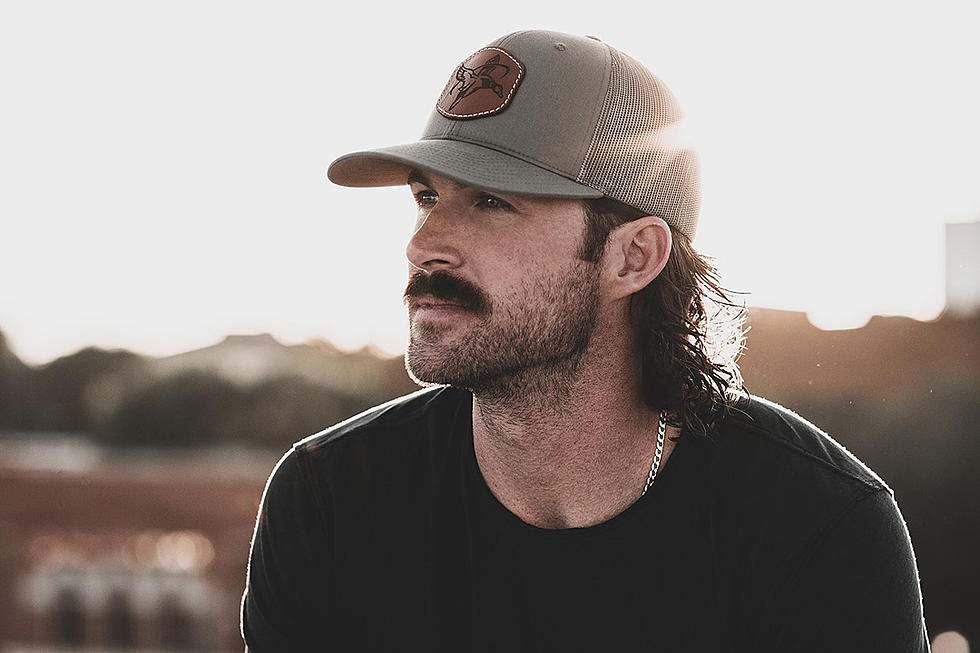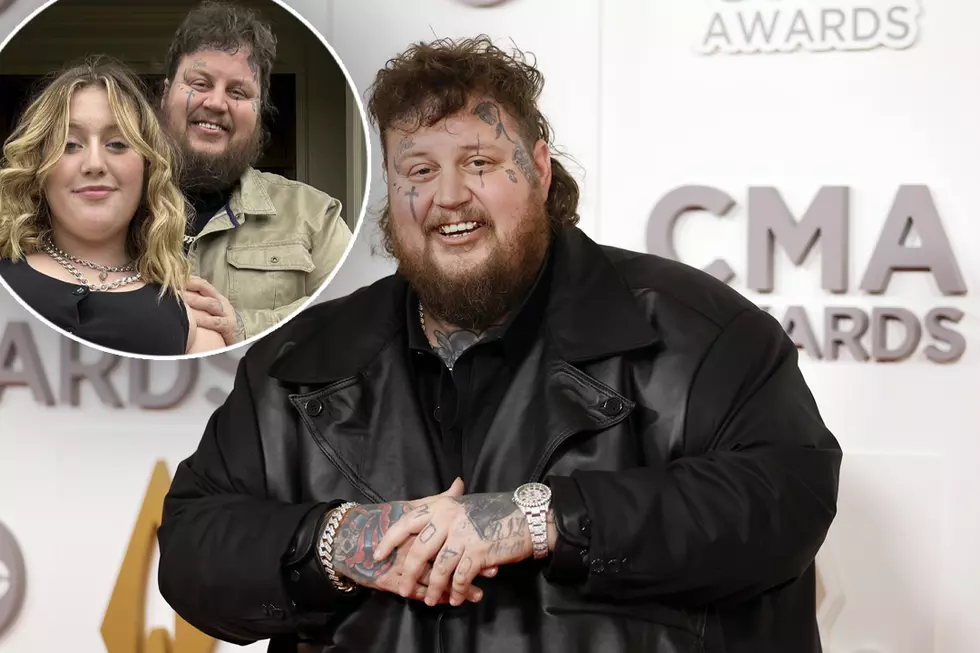
Riley Green Found Perspective, and Along Came His Best Songs Yet
"That's What I've Been Told" is the song to start with on Riley Green's new Behind the Bar EP. The acoustic, fiddle-led rambler strikes many of the same tones his signature song "I Wish Grandpas Never Died" hit in 2019. Green has a way of serving fans a muted form of melancholy that takes several listens to decode.
"Nostalgic" is as close to the right word as you'll find to describe the best of his catalog, but that's not quite right, either, because his experiences — and the axioms he offers throughout three fine-crafted verses and a chorus — don't transcend on paper. They're pretty country, which is fine if you grew up in Pleasant Valley, Ala., but not so much if a place with blacktop roads framed your raising.
"If you're just sayin' prayers, then you ain't praying / If both men ain't shook hands, then it ain't sold / When Daddy don't say nothin', you better listen / 'Cause he won't be here for long," Green sings at the chorus.
It's a strange thing, nostalgia. Details don't matter as much as the feeling.
"It just kind of brings you back to childhood," Green says of a song Bobby Pinson and Chris DuBois helped him hone. "That’s the song that, like ‘Grandpa,’ was so cool to play even before it was recorded. Something so small and minute of an idea that I would take for granted, means something to people from rural areas that grew up in small towns.”
Skim the Behind the Bar tracklist to find a bar song, a truck song, a song about Dixie and one that finds a good woman leaving. Each title is simple, maybe even cliche to those skeptical of uncompromising, rural truths. That's Green's great trick, however — his songwriting seems so effortless that when the emotional punch comes (and it always comes), you do a double-take. Now paired with an A-list team of co-writers, he's burnt up the fluff in favor of tracks that fill the belly. At no point has he ever felt overmatched, something he credits to willful ignorance, but this project in particular is a flex.
“You know, I was really fortunate that I didn’t know anybody in Nashville," the 32-year-old says of his move to town. "I can honestly tell you the only songwriter that I heard of that I wrote with for the first year was Rhett Akins, and that was just because he was an artist. I guess I should have taken the time to look up some of these guys’ bios on Wikipedia to see how many hits they had, but like Singleton (Jonathan Singleton), we just hit it off. He’s a big outdoor guy, loves to hunt. We cut up back and forth and became instant friends."
Thomas Rhett is another co-writer with whom Green bonded with over hunting. The more established hitmaker asked the newcomer to teach him how to duck hunt. They ended up with a few songs from that trip, including "That Was Us," Green's duet with Jessi Alexander.
So, add "fortunate" to a growing list of words that doesn't quite fit Green and his music, but is as good as most of us can do for now. On the surface, he's not a complicated man — duck hunting and George Jones are topics to engage him with in conversation. During a phone call with Taste of Country, he'd defend the South, admit he doesn't like hearing his own voice and confess to hiding behind slot machines at a casino when he can, as opposed to more social games like blackjack or craps. Talent took Riley Green to Nashville, but patience made him a radio star. He says that if he'd have moved to town six or seven years before he did, he'd have flamed out hard.
“I can see how easy it’d be for an artist to go up there, have a couple of years of struggle and then start looking at the charts and go, ‘Man, I need to write songs like this guy,'" he says, scanning the business landscape.
A pandemic was enough to convince him to sell his house and move back to Alabama full time, something once thought of as taboo for new artists, although less so in 2021. He set up the Golden Saw Series from his grandfather's old performance stage near his hometown and asked top songwriters to come down to come film with him.
"I tricked ‘em to come and play my Golden Saw Series so they’d stay a couple days and write, so I wouldn’t have to go to Nashville. So it worked out great for me," Green says with a little chuckle.
This kind of throwback songwriting describes a more personal experience than what's often pictured coming through revolving doors on Music Row. During "That's What I've Been Told" and the EP closer "That's My Dixie," producer Dann Huff does a masterful job adding progressive guitar fills to fiddle-and-steel arrangements. Vocally, Green is styled after more contemporary singers than he is the Possum or Merle Haggard. He'll admit his studio vocals do not stir the same kind of anticipation as his live vocals, something you hear even in a clip posted to Twitter recently, showing him with a little girl onstage to sing "Different Round Here." He barely even sings, but the energy is palpable.
“I always, when I write songs, picture playing them," he says, explaining why he's most comfortable on stage. "And for a lot of artists, that would probably mean how would the lights work, and where is the big moment where they raise the beers up. Mine, I picture myself playing them with just a guitar sitting on a stool and what part is going to go over. So I try to model my writing after what is going to go over in a live show."
Riley Green does things a little differently, and "different" might be the best you can do to explain it.
These Artists Prove Traditional Country Is Alive and Well
More From KICK FM, #1 For New Country


![50 Best Country Party Songs for Every Occasion [Listen]](http://townsquare.media/site/204/files/2020/03/party-songs-playlist.jpg?w=980&q=75)
![Jelly Roll’s Wife Bunnie Xo Sings a Very Naughty Christmas Song [Listen]](http://townsquare.media/site/204/files/2022/12/attachment-jelly-roll-wife.jpg?w=980&q=75)

![Blake Shelton + Gwen Stefani Drop in at ‘The Voice’ Alum Jay Allen’s Oklahoma Ole Red Show [Pictures]](http://townsquare.media/site/204/files/2022/12/attachment-BlakeGwenJayAllen.jpg?w=980&q=75)




